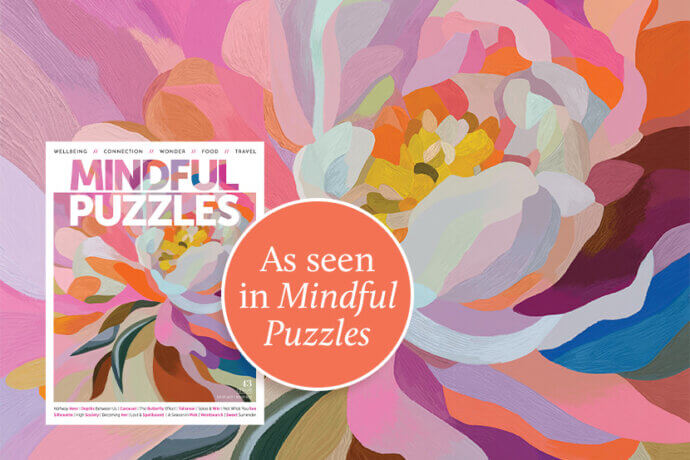
In today’s fast-paced world driven by instant gratification, having patience seems to be a virtue often overlooked.
However, the art of patience is a skill worth cultivating. Beyond its philosophical and moral implications, patience holds a profound beauty with the potential to enrich our lives in various ways, including our mental and physical wellbeing.
Patience allows us to cultivate inner harmony amidst life’s chaos. When we learn to be patient, we gain control over our reactions to external circumstances. Instead of succumbing to stress and frustration, patience empowers us to maintain composure and make thoughtful decisions. This inner peace contributes significantly to our mental health, reducing anxiety and promoting emotional resilience.
Cultivating patience for meaningful connections
In relationships, patience acts as a cornerstone for fostering meaningful connections. Whether with family, friends, or colleagues, patience enables us to listen attentively, understand perspectives, and empathise with others. By demonstrating patience, we cultivate trust, respect, and understanding, enriching the fabric of our social interactions.
Patience: the key to long-term success
Patience is the key to achieving long-term goals. Whether pursuing a career, mastering a skill, or nurturing a relationship, success often requires perseverance over time. And unfortunately, trying to master something new walks hand in hand with facing failure every now and then. Having patience allows us to endure setbacks, learn from failures, and stay committed to our objectives. By embracing the journey rather than fixating solely on the destination, we experience personal growth and fulfilment.
How patience boosts physical wellbeing
Beyond its psychological benefits, patience also contributes to physical wellbeing. Stress and impatience can take a toll on the body, leading to various health issues such as hypertension, insomnia, and digestive problems. Conversely, practising patience promotes relaxation, reduces cortisol levels, and enhances immune function. By prioritising patience, we nurture a healthier body and a more vibrant life.
Embracing the present moment
In a world characterised by constant striving and anticipation, patience encourages us to embrace the beauty of the present moment. By slowing down and savouring life’s experiences, we develop a deeper appreciation for the world around us. Whether enjoying a quiet sunset, relishing a home-cooked meal, or immersing ourselves in nature’s wonders, patience allows us to find beauty in the ordinary and extraordinary alike.
Strategies and tips for developing patience
So, exactly how do I practise patience, I hear you ask. When you find yourself rushing to the finish line – of anything – and feel yourself becoming more and more impatient, think it out. Sometimes to bring about a patient mindset, you just need to think through what’s happening. Understanding what you’re facing and coming up with a plan to do so means you might feel more in control and equipped with the mental space to stay calm.
Run through some of the following questions – your answers might help you figure out what to do.
- What is my goal?
- What did I think it was going to take to reach this goal?
- What is it now going to take?
- Are there ways to reduce the costs of reaching this goal?
- Is it time to let go of this goal or do I want to persevere?
If that doesn’t work, try talking about it.
Have you ever had a problem you couldn’t solve, gone to complain to a friend about it, and then in the process of explaining the problem to them realised what the solution is? Thinking about how to express a problem can often help you find the path to solving it.
Patience is not merely a passive virtue but a dynamic force that enriches every aspect of our lives. By cultivating a mindful patience practice, we unlock a wealth of benefits, from mental clarity and emotional resilience to healthier relationships, and physical wellbeing. As we embrace the beauty of patience, let us savour the journey, cherish the connections, and find solace in the tranquillity of the present moment. In a world that often values speed over substance, let patience be our guiding light toward a more fulfilling and harmonious existence.
Mastering patience during waiting periods
Sometimes there’s no problem to be solved – you just need to wait. These times can actually be the best space for you to work on your mindful patience practice. Take deep breaths, relax your shoulders and neck, and let your mind go blank. Let go of any tension or anger that you’re holding on to by trying box breathing.
Also called square breathing, this technique is used by people in various high-stress industries, like nurses and athletes, to stay calm and focused, and it’s easy to do wherever you are. Follow these simple steps to soothe impatience when it comes knocking.
- Breathe in while counting to 4
- Hold your breath while counting to 4
- Breathe out while counting to 4
- Pause while counting to 4
- Repeat
This article was originally published under the title Practising Patience in Issue 37 – Practising Patience. You can purchase previous issues and enjoy more enchanting content here.




















